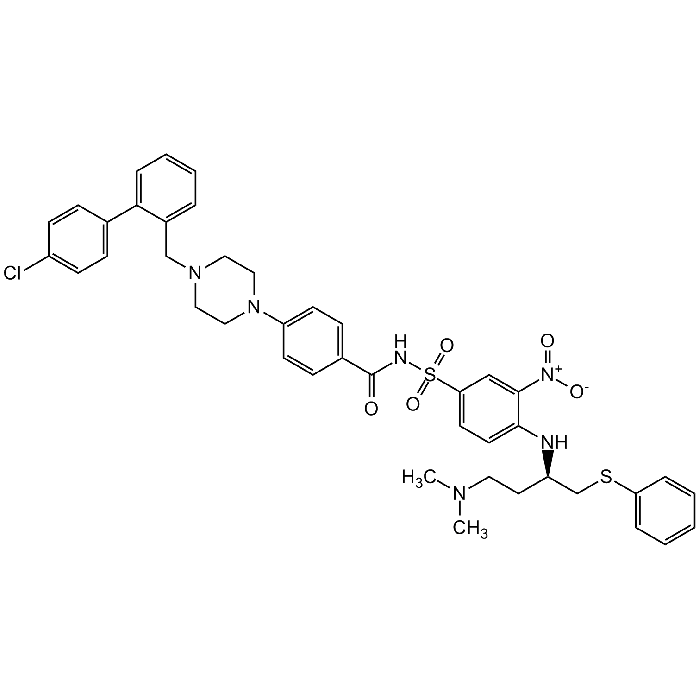Cookie Policy: This site uses cookies to improve your experience. You can find out more about our use of cookies in our Privacy Policy. By continuing to browse this site you agree to our use of cookies.
SynKinase
ABT-737

| Product Details | |
|---|---|
| Synonyms | ABT737 |
| Product Type | Chemical |
| Properties | |
| Formula |
C42H45ClN6O5S2 |
| MW | 813.4 |
| CAS | 852808-04-9 |
| Purity Chemicals | ≥95% |
| Appearance | Solid. |
| Solubility | Soluble in DMSO. Slightly soluble (<1mg/ml) in ethanol. |
| Declaration | Manufactured by SynKinase. |
| Other Product Data |
Target: Bcl-2 | Kinase Group: PPI | Substrate: N/A Click here for Original Manufacturer Product Datasheet Our product description may differ slightly from the original manufacturers product datasheet. |
| InChi Key | HPLNQCPCUACXLM-PGUFJCEWSA-N |
| Shipping and Handling | |
| Shipping | AMBIENT |
| Short Term Storage | +4°C |
| Long Term Storage | -20°C |
| Use/Stability | Stable for at least 2 years after receipt when stored at -20°C. |
| Documents | |
| MSDS |
 Download PDF Download PDF |
| Product Specification Sheet | |
| Datasheet |
 Download PDF Download PDF |
ABT-737 is a small-molecule inhibitor of the anti-apoptotic proteins Bcl-2, Bcl-X(L) and Bcl-w, with an affinity two to three orders of magnitude more potent than previously reported compounds. Mechanistic studies reveal that ABT-737 does not directly initiate the apoptotic process, but enhances the effects of death signals, displaying synergistic cytotoxicity with chemotherapeutics and radiation. ABT-737 exhibits single-agent-mechanism-based killing of cells from lymphoma and small-cell lung carcinoma lines, as well as primary patient-derived cells, and in animal models, ABT-737 improves survival, causes regression of established tumors, and produces cures in a high percentage of the mice. ABT-737 binds to Bcl-2, Bcl-xL and Bcl-w with very high affinities (Ki <1 nM) and also shows a very high specificity over Mcl-1 and A1.
- An inhibitor of Bcl-2 family proteins induces regression of solid tumours: T. Oltersdorf, et al.; Nature 435, 677 (2005)
- Synthesis and biological activities of new di- and trimeric quinoline derivatives: S. Broch, et al.; Bioorg. Med. Chem. 18, 7132 (2010)
- Discovery of potent and selective benzothiazole hydrazone inhibitors of Bcl-XL: B.E. Sleebs, et al.; J. Med. Chem. 56, 5514 (2013)





